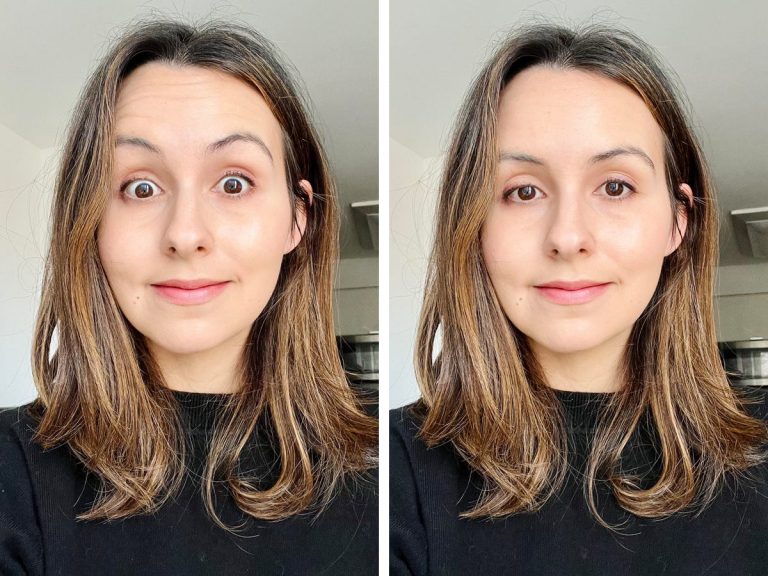-
I got Botox because I hated my forehead lines.
-
While it made them disappear, I also lost the ability to move my eyebrows for months.
-
It was harder to express joy or silliness and it made me look crazier to people
I zoomed in on the photo my fiancé just took of me, the one he took moments after our engagement.
“Ugh, what’s that!” I squealed, hovering over the two long folds that spread across my forehead.
Whenever I complained about my wrinkles to him or my friends, I always got some variation of “PLEASE” and “Um, I think you have a facial deformity.” But that didn’t matter. Nor the fact that I saw other women my age with the same fine lines on their foreheads, a natural byproduct of being alive, and found theirs truly beautiful. I still wanted mine to disappear.
After he tried to drive them away with facial tape and a massacre of antiaging productsI finally decided to give it a try Botox for the first time.
The expected result? It worked! The skin above my eyes was taut and smooth, like I’d spent my 32 years living peacefully in a pastel-hued mansion rather than a good chunk of them huddled in a New York apartment during a pandemic.
The unexpected downside? I lost a basic facial expression, causing me to appear mad, bored, or depressed when I was actually excited (or at least neutral).
My friends and family couldn’t read my expressions
I have a monotone voice. No matter how interested or passionate I am about a subject, when I play back recordings of my source interviews, all I hear is Nathan Fielder.
For years I relied on my eyebrows to express myself, from shock to exuberance. All of my college pictures show my eyebrow going up to my hairline in surprise or joy, which is why I had those lines in the first place. (That too I neglected sunscreen for most of my 20s).


I didn’t disclose getting botox to everyone right away, without explaining why my eyebrows suddenly stopped raising. But once I did, the people in my life were relieved.
“I was wondering why you looked so mad,” my mom said during the holidays.
One friend, hearing me retell the proposal story, thought I was secretly going through some turmoil and even privately asked my other friend if I was okay. When he found out I had botox, the sudden lack of my usual facial expressions made sense. Both friends laughed when I showed them the proof: I strained to create even the slightest crease or dent in my forehead, except for a slight twitch in my right eyebrow.
I was excited when my botox started to wear off
After about a month, the botox started to gently lose its grip. While the lines didn’t stick, I could move my face as freely as before.


When I first got them, I was hoping for mine Botox injections could last as much as possible to get my money’s worth (one session is $300-$500, average). I was even worried that exercising as much as I did would make them metabolize faster.
But once they started to fade at two months, I was relieved. I was at the ideal, if very short-lived, point: able to express myself without the evidence I had.
I lost a part of my face I didn’t know I loved
Now, I am at the end point of my botox treatment. The lines are faint, but they are coming back. Surprisingly, I am very happy.
I’ve always felt conflicted about Botox or similar anti-aging procedures. It felt like a personal betrayal to obsess over ageist beauty standards, especially those that could have unpleasant side effects like tilting the face. Besides, Botox is not something I would realistically continue since I plan to have children. Injections are potentially dangerous during pregnancy and breastfeeding and I can’t see myself budgeting for Botox considering how expensive childcare is.
I don’t know if I’ll ever take it back though: the few months I’ve had without worrying about my wrinkles and thinking about literally anything else have been nice. I took pictures and didn’t start criticizing my appearance, just spiraling into criticism of my appearance. I thought lifting weights and romance novels Instead.
I’m relieved I didn’t love botox and will always feel ambivalent about it. The experience was like a spell in a fairy tale: to look younger, I had to give up the part of my face that I ironically associate most with my youth — with silliness and glee and utter disdain for how I’ll look in the future.
Read the original article at Business Insider

